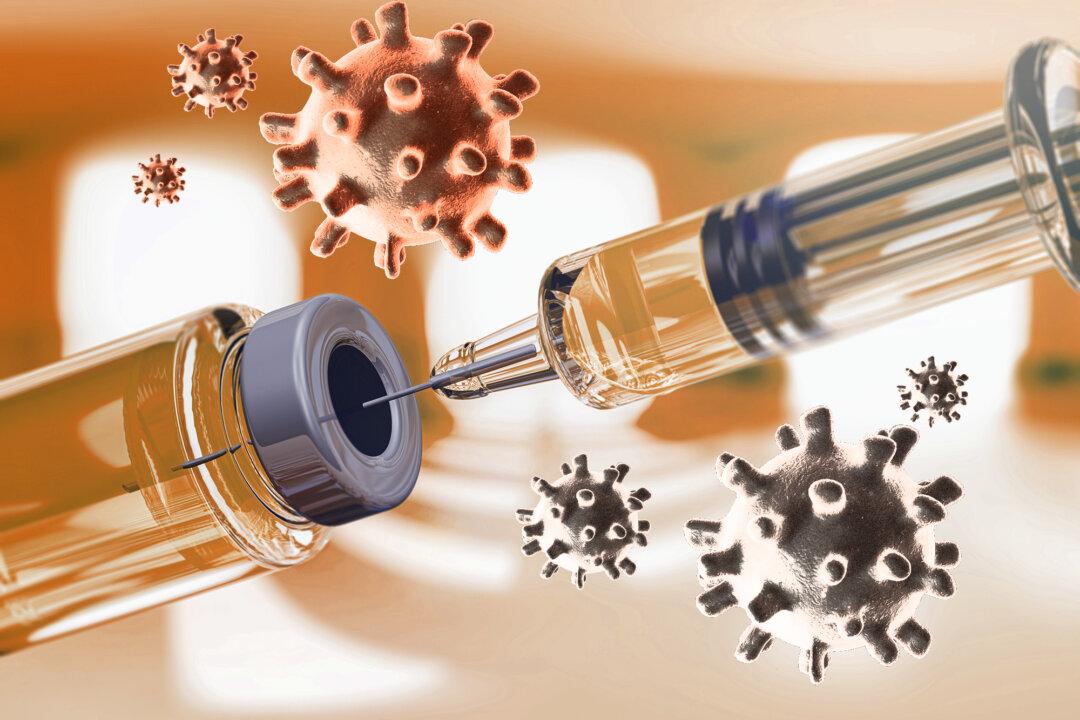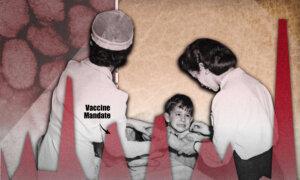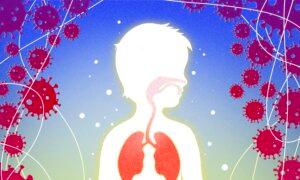Vaccines Could Impact Mortality and Risks of Other Diseases: Study


Apart from potentially preventing a particular disease, vaccines may cause persistent nonspecific effects that can affect a person’s lifetime survival.
A live vaccine contains a weakened form of the pathogen, which is less virulent but capable of replicating in the body, thus mimicking the actual disease progression. Non-live vaccines use inactivated viruses, fragments, or genes of the pathogen to trigger an immune response without pathogen replication.
Live vaccines elicit a much stronger immune defense, typically requiring only one shot, while non-live vaccines result in a weaker response, often necessitating multiple shots.
So far, research has identified several non-live vaccines that cause adverse nonspecific effects, namely DTaP and Tdap, influenza H1N1, malaria, hepatitis B, inactivated polio, and COVID mRNA vaccines.
The Vaccine study singled out DTaP, influenza, malaria, hepatitis B, and COVID mRNA vaccines.
On the other hand, live vaccines such as the oral live polio vaccine (OPV), the Bacillus Calmette-Guérin (BCG) vaccine for tuberculosis, and the smallpox vaccines all have beneficial nonspecific effects, according to the study.
“Live vaccines ... elicit epigenetic alterations that train the innate immune system and increase immunity to unrelated infections. In opposition, non‐live vaccines may promote ‘tolerance’ that increases susceptibility to unrelated illnesses,” the authors suggested.
The study was primarily based on decades of work from Danish researchers Dr. Christine Stabell Benn and professor Peter Aaby.
Non-Live Vaccines Are Like an ‘Ill-Prepared’ Army
“Historically, we’ve thought about the innate immune system as the first line of defense,” Dr. Benn told The Epoch Times.It was thought that innate immunity could not store memory. To use war as an analogy, the immune system’s “army” could not learn from previous battles with pathogens. Adaptive immunity, on the other hand, could learn and be trained, forming antibodies to fight against the infection.
Therefore, for a long time, vaccines were evaluated based on their effects on the adaptive immune system, and antibodies were measured following vaccination.
Thus, the innate immune system actually does learn something from its previous battles. This is called trained innate immunity.
Live vaccines, which mimic an actual disease, enhance the effectiveness of the innate immune system in defending against infections. Non-live vaccines, on the other hand, weaken the immune system’s ability to fend off infections.
In a TED talk, Dr. Benn compared infections to a competitive tennis match and live vaccines to a tennis coach. The tennis coach may change tactics and strategies, training the body to have “a wide variety of tricks” against the pathogen. Non-live vaccines, however, are like tennis ball machines that shoot out balls at a specific speed and spot. If a person only trains with a tennis ball machine, he or she will be less prepared for an actual match.
Nonspecific Effects
Some vaccines result in positive nonspecific effects, but others may result in overall adverse nonspecific effects. The order in which vaccines are administered also factors in.While non-live vaccines cause negative NSEs, administering a live vaccine after a non-live one neutralizes negative NSEs, Dr. Benn said.
This has been shown in studies evaluating the safety of measles vaccines, which are often given around the same time as DTP, a non-live vaccine. Studies have found that if the measles vaccine are given after the DTP vaccine, there is an overall positive effect, whereas if this order is reversed, then there is a negative effect.
“It seems that effects are strongest as long as the vaccine is the most recent vaccine,” said Dr. Benn.
Dr. Benn added that the BCG vaccine has long-term beneficial nonspecific effects “in spite of other vaccines being given afterwards.”
Live Vaccines Replaced With Non-Live Vaccines
Non-live vaccines are increasingly replacing live vaccines. For example, live oral polio vaccines are no longer available on the U.S. market, and a non-live version is administered instead.This substitution of live vaccines with non-live can pose potential health risks to the general immunity of the population, as the immune systems become less trained and potentially “lazy,” said Dr. Benn.
However, the main reason non-live vaccines are preferred over live vaccines is that they are believed to be safer for people with depleted immune systems.
Since a live vaccine causes mild disease in the body, people with acquired immunodeficiency syndrome can develop a disease from the injection and may die since their bodies are unable to clear infections. Conversely, non-live vaccines comprise only disease components, so they cannot induce disease.
In this aspect, Dr. Benn said that the “risk of getting the real disease with the live vaccines has been seen as a bigger threat than I think it deserves.”
Research suggests that people with weaker immune constitutions due to age or chronic disease may sometimes benefit from having their immune systems trained using live vaccines.
Health Authorities Still Skeptical
Despite the evidence suggesting the potential superiority of live vaccines, Dr. Benn’s research has been largely unacknowledged by the mainstays of academia.Immunologists now largely agree that some vaccines cause nonspecific effects, but how these effects should be quantified remains controversial.
This is because the nonspecific effects of vaccines are dependent on context, whereas a vaccine’s specific effects are generally considered context-independent. For example, females may make more antibodies than males and younger people more than older, but most people still get some form of immunity.
“In contrast, because the nonspecific effects act on the broader innate and general immune system, they are dependent on other factors going on in the immune system ... like other health interventions that can alter and modify the nonspecific effects,” Dr. Benn explained. Not everybody will have the same benefit, she added.
Additionally, pharmaceutical companies may be more reluctant to produce live vaccines because they are harder to culture and manufacture.
“If you have ever tried to bake with sourdough, it’s a little bit like live vaccines; they are very dependent on the temperature of the room, the water used to culture it, and so on,” said Dr. Benn.








Ei kommentteja:
Lähetä kommentti